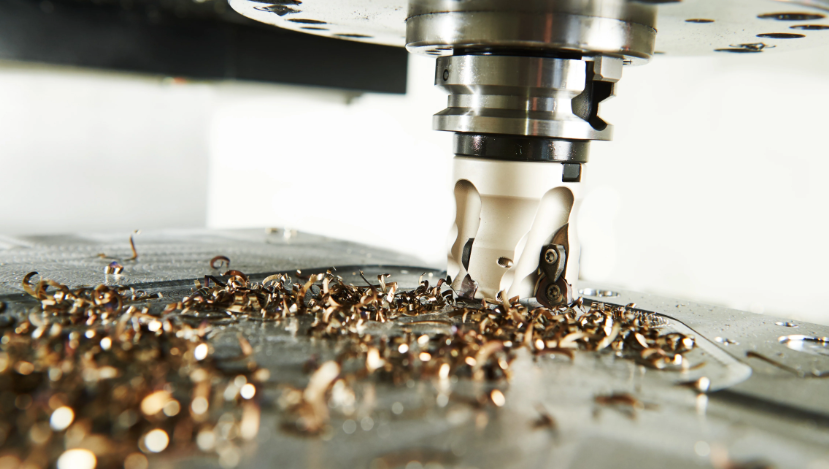In the evolving world of manufacturing, precision and efficiency are paramount. Enter CNC machining – a technological marvel that has redefined how we produce parts and products. From aerospace to healthcare, this innovative process is at the heart of modern manufacturing. But what exactly is CNC machining, and why is it so crucial? Let’s delve deeper into this transformative technology.
What is CNC Machining?
CNC, or Computer Numerical Control, machining is a manufacturing process in which pre-programmed computer software dictates the movement of machinery and tools. This process allows manufacturers to produce complex parts with exceptional precision, speed, and repeatability. Unlike manual machining, where an operator directly controls the tools, CNC machines execute commands from a computer program, ensuring consistent results every time.
The Basics of CNC Machining
CNC machining involves several key steps:
- Designing the CAD Model: The process begins with creating a detailed Computer-Aided Design (CAD) model of the part.
- Generating the CAM Program: The CAD file is then converted into a Computer-Aided Manufacturing (CAM) program, which creates the code needed to guide the machine.
- Setting Up the Machine: The operator loads the raw material and configures the CNC machine.
- Machining the Part: The CNC machine executes the programmed instructions, cutting, drilling, or milling the material to create the final product.
Types of CNC Machines
CNC machining isn’t a one-size-fits-all solution. Different types of CNC machines cater to various manufacturing needs. Here are some of the most common types:
1. CNC Mills
CNC milling machines use rotating cutting tools to remove material from a workpiece. They are ideal for producing intricate designs and detailed features.
2. CNC Lathes
Lathes rotate the workpiece while cutting tools shape it. They excel in creating cylindrical parts such as shafts and bushings.
3. CNC Routers
CNC routers are designed for cutting softer materials like wood, plastic, and foam. They are popular in industries like furniture making and signage.
4. CNC Plasma Cutters
These machines use a high-powered plasma torch to cut through metal. They are widely used in automotive repair and construction.
5. CNC Electric Discharge Machines (EDMs)
EDMs use electrical sparks to erode material from a workpiece. They are ideal for creating intricate and delicate parts.
Advantages of CNC Machining
CNC machining offers a host of benefits, making it indispensable in modern manufacturing:
1. Precision and Accuracy
CNC machines can achieve tolerances as tight as 0.001 inches, ensuring exceptional accuracy. This level of precision is crucial for industries like aerospace, where even minor deviations can lead to significant consequences.
2. Consistency and Repeatability
Once a program is created, CNC machines can produce identical parts consistently, making them ideal for high-volume production.
3. Efficiency
CNC machining reduces production times by automating complex processes, allowing manufacturers to meet tight deadlines.
4. Versatility
From metals and plastics to composites and wood, CNC machines can work with a wide range of materials.
5. Reduced Waste
The precision of CNC machining minimizes material waste, making it a cost-effective and environmentally friendly option.
6. Enhanced Safety
By automating tasks, CNC machining reduces the need for manual intervention, lowering the risk of workplace accidents.
Applications of CNC Machining
The versatility of CNC machining has made it a cornerstone in various industries. Here are some of its most notable applications:
1. Aerospace
In the aerospace sector, precision is non-negotiable. CNC machining is used to create complex components like turbine blades, engine parts, and landing gear with unparalleled accuracy.
2. Automotive
From prototypes to final parts, CNC machining is instrumental in producing high-quality components for the automotive industry, including gears, shafts, and engine blocks.
3. Healthcare
Medical devices and implants require extreme precision. CNC machining produces items like surgical instruments, prosthetics, and dental implants with exacting standards.
4. Electronics
CNC machines are used to fabricate components like circuit boards, heat sinks, and connectors, ensuring reliability and performance.
5. Defense
The defense industry relies on CNC machining for manufacturing weapons, ammunition, and vehicle components with strict quality control.
6. Consumer Goods
From customized jewelry to furniture, CNC machining caters to the demand for personalized and high-quality consumer products.
Future Trends in CNC Machining
As technology continues to advance, so does the potential of CNC machining. Here are some trends shaping its future:
1. Integration with AI and IoT
Artificial Intelligence (AI) and the Internet of Things (IoT) are revolutionizing CNC machining. Smart machines can monitor their performance, predict maintenance needs, and optimize production processes in real time.
2. Hybrid Manufacturing
Combining CNC machining with additive manufacturing (3D printing) allows manufacturers to leverage the strengths of both processes, creating parts with complex geometries and superior properties.
3. Improved Materials
Advances in material science are enabling CNC machines to work with new materials, including advanced composites and superalloys, expanding their application scope.
4. Increased Automation
Automation is reducing the need for human intervention, enhancing efficiency and lowering costs. Robots are increasingly being integrated into CNC machining workflows.
5. Sustainability
As environmental concerns grow, manufacturers are focusing on sustainable practices, including energy-efficient machines and recycling programs.
Conclusion
CNC machining has become a linchpin in the manufacturing world, offering unmatched precision, efficiency, and versatility. Its applications span a myriad of industries, from aerospace to consumer goods, making it an essential tool for modern production. As technology evolves, the capabilities of CNC machining will only continue to grow, paving the way for even greater innovations. For businesses aiming to stay competitive, investing in CNC machining is not just an option – it’s a necessity.
